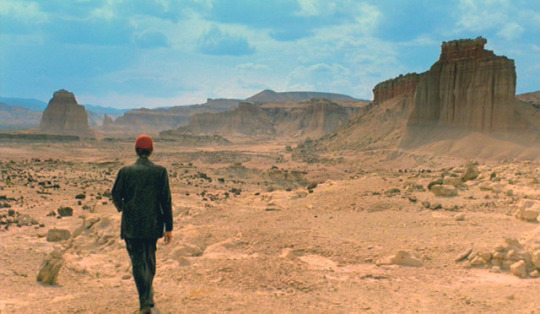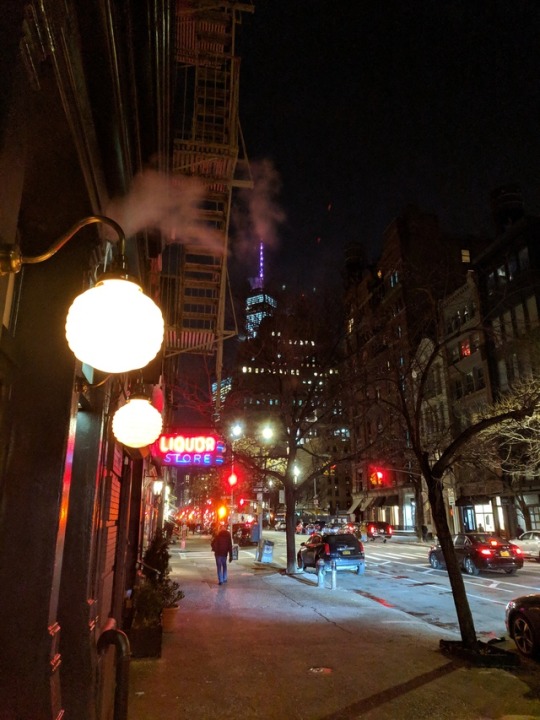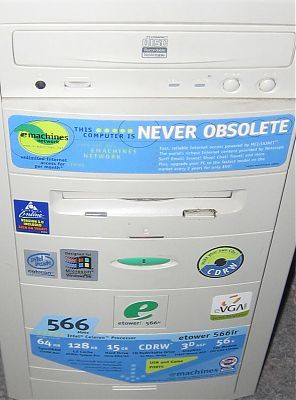Don't wanna be here? Send us removal request.
Text
if money were no object
https://www.elizabethroberts.com/houses-townhouses#/cobble-hill-townhouse
1 note
·
View note
Text
Special interests
From The Economist:
The millennial socialist vision of a “democratised” economy spreads regulatory power around rather than concentrating it. That holds some appeal to localists like this newspaper, but localism needs transparency and accountability, not the easily manipulated committees favoured by the British left. If England’s water utilities were renationalised as Mr Corbyn intends, they would be unlikely to be shining examples of local democracy. In America, too, local control often leads to capture. Witness the power of licensing boards to lock outsiders out of jobs or of Nimbys to stop housing developments. Bureaucracy at any level provides opportunities for special interests to capture influence. The purest delegation of power is to individuals in a free market.
This summarizes the most common misunderstanding people my age seem to have about government: the idea that its arms are somehow immune to control from powerful interests, and if we can just configure them in the right way, then government is some kind of impartial superhero.
In fact, government inevitably invites corruption. Bureaucracies are a tasty target for capture because of how static they are. Once controlled, effects are harder to unwind than they would be in a market, where no one party has coercive power.
1 note
·
View note
Text
Demolition Man (1993)
I watched Demolition Man (1993) the other night and was pleasantly surprised. It's set in a dystopian, sundrenched future where the Californian coastal sprawl has been consolidated into one large city, San Angeles. The cast is basically a rolodex of stars, (90s) present and future: Wesley Snipes, Sandra Bullock, Sylvestor Stallone, Denis Leary, Rob Schneider, Jesse Ventura. Supposedly even Jack Black has a bit part in the sewers.
Its presentation of 2032 is oddly prescient in some ways but totally cartoonish in others: the crux of the story is that this Californian utopia of the future has outlawed anything that's "bad" for you: physical sex, caffeine, red meat, swearing, etc. But in refining everything that is coarse and incidentally eliminating violent crime, the police have forgotten how to do their jobs and so when a murderous Wesley Snipes shows up, Sly Stallone comes to save the day with a dose of 20th century brutality.
This setup feels oddly relevant in 2019 and Stallone's position very relatable to someone who sees most contemporary Americans as thin-skinned, afriad of gender roles, and coddled by comfort.
Denis Leary's character Edgar Friendly is the perhaps-unintentional spirit animal for disgruntled Libertarians. This gets hammered home as he explains to Stallone (John Spartan) why he and his unhygienic freedom-loving herd of Angelinos live in a sewer:
John Spartan: I guess you weren't part of the Cocteau Plan.
Edgar Friendly: Greed, deception, abuse of power? That's no plan.
John Spartan: And that's why everybody's down here?
Edgar Friendly: You got that right. See, according to Cocteau's plan, I'm the enemy. Cause I like to think, I like to read. I'm into freedom of speech and freedom of choice. I'm the kind if guy who wants to sit in a greasy spoon and think, "Gee, should I have the T-bone steak or the jumbo rack of barbecued ribs with the side order of gravy fries?" I want high cholesterol. I want to eat bacon, butter and buckets of cheese, okay? I want to smoke a Cuban cigar the size of Cincinnati in a non-smoking section. I wanna run through the streets naked with green Jello all over my body reading Playboy magazine. Why? Because I suddenly might feel the need to. Okay, pal? I've seen the future, you know what it is? It's a 47-year-old virgin sittin' around in his beige pajamas, drinking a banana-broccoli shake singing "I'm an Oscar-Meyer Wiener". You wanna live on top, you gotta live Cocteau's way. What he wants, when he wants, how he wants. Your other choice: come down here, maybe starve to death.
John Spartan: All right, then why don't you take charge and lead these people out of here?
Edgar Friendly: I'm no leader. I do what I have to do. Sometimes, people come with me. All I want to do is bury Cocteau up to his neck in shit and let him think happy-happy thoughts forever.
(video of the speech here, Leary is inimitable)
The movie does a great job of blending humor and action, which at points gets to be over the top. Its vision of 2032 California is mostly very entertaining and has a soft luster unique to something printed in the late 80s/early 90s. The one-liners are cheesy and wonderful.
I really enjoyed it and wish there were more movies like it. If you like Blade Runner, Die Hard, or The Last Action Hero you'll like this.
1 note
·
View note
Video
youtube
This tune... Man do I rate this tune... This tune is like... The tune you play when all the mates are around and things really start to kick up... Yeah.... Rogers in the back... Pilled out of his wiggy head.... Stellas towards the front of the room dancing about.... Shes bare fit isnt she..... I check my phone... The uber is here.... But this pre is proper kickin innit..... Would it be too crazy just to have a night in the flat... I look at Johno.... He scowls and hurries the rest of us out the door to get in the uber... His house, his rules..... This tune is that moment, and I proper rate that moment.
25puts
0 notes
Photo

Paris, Texas. 1984. Directed by Wim Wenders.
This is one of the all-time greats.
Ry Cooder's wandering steel guitar is the perfect backdrop for Harry Dean Stanton's somnambulant odyssey through Texas and LA.
Nobody in this movie is a charicature, but everyone has character.
I'm impressed at how Wenders shows both wilderness and cityscape with cinematography that's so beautiful it hurts. The potency of each extreme is heightened by the presence of the other.
There's as much or more truth in the negative space as there is in the dialogue.
1 note
·
View note
Text
Sean Woods: You once wrote that Dashiell Hammett perfectly captured the American notion that a job can destroy a person. Is that what happens to your characters?
James Ellroy: The core of Hammett's art is the masculine figure in American society – he is a job holder. He goes at his job with a ruthless determination and has an unwillingness to look beyond it. That's who these guys of mine are. They are so fucking proficient, even as their lives are in precipitous decline. They're eaten up, but they're driven by their inbred American sense of responsibility. There's an undercurrent of tenderness that's driving them as they go about doing their jobs so very ruthlessly.
James Ellroy's American Apocalypse
0 notes
Quote
Ricardo, a 30-year-old photography teacher, is earning about $500 in monthly revenue with a rack of five mining computers hidden in a soundproofed room of his family's two-story house. His mother has chronic liver disease, and the medication she needs to stay alive is no longer sold in Venezuela. With bitcoins, he's able to purchase the drug from foreign suppliers. "Bitcoin," he says, "is our only hope nowadays to survive."
http://reason.com/archives/2016/11/28/the-secret-dangerous-world-of
0 notes
Photo

The cash4-arrest-kiss photo remains one of my favorites.
I used to love seeing his stuff when I lived in Brooklyn. He had one piece that was just a series of taunts scrawled out on the Williamsburg bridge Manhattan-bound bikepath. I'd read each one while I was biking up, the bitey snark making fun of my efforts to pedal up the incline.
Check out his some of his stuff.
1 note
·
View note
Text
Nakamoto’s sweaty nightmare
On Thursday The Economist published an article about the ambition of a few nations (namely China and Russia) to supplant their cash supplies with centralized "blockchains."
RUSSIA’S central bank has set up a working group. The People’s Bank of China (PBOC) is keen. Inspired by bitcoin and its blockchain technology, the world’s central bankers are contemplating digital currencies of their own.
While it's always good to see major press related to Bitcoin, some of the content in this article is deeply ironic and sort of distressing.
Digital central-bank money could even, in theory, replace cash. If it did, central bankers could then use deeply negative interest rates to give the economy a jolt. And boosting growth by handing out “helicopter money” would become as easy as adding a zero to electronic balances.
Great; so when central banks switch to cryptocurrency, inflating away the citizenry's store of value can be done from a webapp. Sizable bailouts to careless banks and darling industries happen in a few clicks.
The Economist continues in hopefully mock glee:
Better yet, whereas bundles of banknotes can be moved without trace, electronic payments cannot. Replacing cash with digital currency, under the control of the central bank, would make it tougher to launder money, dodge taxes or sell drugs. It would also make prying into people’s finances much easier.
Bitcoin was created with the partial motivation of freeing people up from the occasional but severe injustices that stem from a fiat monetary supply. Ironic and a little sad that this technology may be turned on its head to grow centralized power. Really amplifies the Rebel-alliance-vs-Imperial-army vibe.
0 notes
Video
youtube
There's blood on the datacenter floor in Virginia. There's blood on the chassises in the middle of the desert. There are alcoholics in the cubicles and giggling, manic breakdowns in the middle of the night, weeping in front of machines that have lost their signal.
everything2
0 notes
Quote
I wasn’t trying to make a technically accurate movie. I was trying to make an urban fairy tale. In the end, I think the reasons “Hackers” had such staying power were some of the reasons people were put off by it in the first place — the nonliteral view of technology ages better than realism.
Ian Softley, on Hackers. genius.
0 notes
Text
fasting, workouts
I'm going to experiment with going back to fasted workouts. These days I'm doing medium-to-heavy barbell exercises, and while I've had good success working out in the afternoons after lunch (2-3pm), I want to shift priority from lifting a ton of weight to generally furthering and preserving health.
I've read a few different sources that advocate fasted, compound lifts as an interesting alternative to fed workouts. I'm also very interested in fasting as a general way to be healthier; I get the impression sometimes (whether it's right or wrong) that I'm irritating my stomach just by nature of constantly pushing food through it. The kind of eating patterns we indulge in now certainly aren't the status quo for how our bodies evolved, so the fasting narrative has always been especially compelling to me.
Also going to be looking into ketosis again... will report back.
0 notes
Quote
Reunion | Jeffrey Skinner
Why do you keep returning, alive, able to walk and gesture as you could not at the end, your movements sketchy, more holographic than warm? Thanksgiving dinner with all the relatives and I alone with the suspicion that I cannot speak: You should be elsewhere. Heavy drinking, as always. The newest baby passed around like a contagious glow. Same teasing of the strong, same muffled terror of the uncertain. All the while you, at the head of the table like a signal carried by a frayed wire - there, gone, there- raising a glass to toast, the rim never touching your lips.
0 notes


